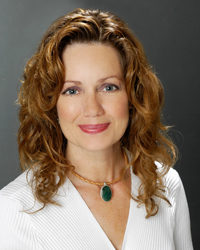Community Health Systems works to strike a balance between cost-savings, physician satisfaction, and service with its physician practices.
Sometimes, good things come in small packages, says Barbara Wilson, director of physician practice services for Community Health Systems, Brentwood, Tenn.
“It’s true that on the ambulatory side, we can’t drive the cost savings of our acute-care cousins, and at times, yes, I am tempted to be envious of those numbers,” says Wilson, who manages supply chain services for 4,300 clinicians at roughly 1,700 locations across 29 states. “But, I believe in the ambulatory setting, we have the luxury of greater flexibility in addressing the needs and preferences of our practices and clinicians than that afforded in a hospital supply chain structure.
“Striking that balance between cost-savings, physician satisfaction, and service to our practice directors is a high priority in our ambulatory markets. If the tradeoff to that service and satisfaction is that we don’t have bragging rights when it comes to the numbers, that’s a tradeoff I can embrace.”
CHS comprises close to 200 hospitals. In August 2015, the company announced it would spin off 38 hospitals. That means Wilson – who joined CHS as manager of physician practice purchasing in 2008 – will retain responsibility for approximately 3,800 clinicians at 1,450 sites after the spinoff is completed. Those sites are heavily concentrated in the Midwest, Southeast and Northeast, though some are located as far away as Washington State.
“I currently have responsibility for a dual focus,” says Wilson, who joined CHS after 25-plus years in corporate America. “One part is facilitating revenue generation and the other cost-containment.”
Revenue-generating duties include assisting practice managers with onboarding of newly hired clinicians, providing tools to help them coordinate the required start-up activities needed for those clinicians to start seeing patients, and billing for their services. Cost-containment activities are related to the supplies and services needed to run the practices’ day-to-day operations, and building vendor relationships and account structures around negotiated contracts.
Serving physician practices: What’s it like?
In some ways, servicing physician practices is no different from serving the acute care hospital, says Wilson.
“Our approach is one of collaboration with our physicians and other clinical leaders, always with a primary focus on providing the highest quality in patient care,” she says. “We continue to look for ways to help our practice managers and clinicians focus on patient care rather than the logistics of running the business.”
But in many ways, servicing physicians is a world apart from the acute care setting.
“The most obvious difference is the ability to provide supplies in an appropriate unit of measure and in the actual type of products distributed,” she says. “Our sites need boxes of gloves rather than cases, and exam tables rather than hospital beds. Specializing in meeting those needs drives more volume, which drives negotiating power at the contracting table with those product manufacturers.”
For some time, CHS contracted with an acute-care-focused distributor to service their physician practices. But that approach presented several challenges, including unit-of-measure issues and accompanying difficulties with inventory, pricing, even packaging.
In Spring 2013, CHS launched a pilot program with Henry Schein to “test drive” the distributor’s capabilities in product availability and pricing, customer service, order fulfillment, reporting, e-commerce capabilities and other metrics, says Wilson. At the conclusion of the program, more than 86 percent of the practices involved said that, given the opportunity, they would select Schein as their distributor.
HealthTrust – of which CHS is an equity partner – signed an agreement with Henry Schein in June 2014; CHS signed a letter of commitment the following October.
Custom catalog
Year 1 of the relationship has been fruitful. “After months of review and with valued input from our clinical, financial, and operational teams, CHS Physician Practice Services recently launched our Custom Catalog with Henry Schein,” says Wilson. The catalog is a formulary of clinically approved, contracted, and low-cost leading products, she explains.
Practices log onto the custom catalog to shop and place orders. “This makes purchasing of medical, lab, and pharmaceutical supplies less complicated for our practice managers,” she says. “[That] in turn allows them to focus on their most important priority – patient care – while at the same time driving significant cost-savings for our organization.” Most sites receive their orders within 24 hours of placing them.
The key to the program’s success is quality and flexibility. “We don’t want to put our clinicians in so small a box that they feel they have no options,” says Wilson. “We have identified subject matter experts among our clinical teams. Depending on the product, we call on those teams to look at product offerings and do some comparisons. Clinical acceptability is the top consideration. Then we ask, is it a HealthTrust-contracted item and/or low-cost leader?” If a piece of equipment is being evaluated, a key question is, “Will it connect with patients’ medical records through our ambulatory medical record (AMR) system?”
“We rely on Henry Schein and their product experts to help us,” she continues. “They have established relationships in the industry, which can be of great benefit to us from a service and cost perspective.
“The decision to partner with Schein was ultimately an easy one, and that decision has been validated as a sound one again and again in the past year of our relationship.”

